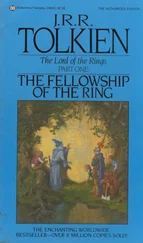Helge Fauskanger - J.R.R. Tolkien’s Lord’s prayer and Hail Mary in Quenya - Syntactical and Etymological Analysis
Здесь есть возможность читать онлайн «Helge Fauskanger - J.R.R. Tolkien’s Lord’s prayer and Hail Mary in Quenya - Syntactical and Etymological Analysis» весь текст электронной книги совершенно бесплатно (целиком полную версию без сокращений). В некоторых случаях можно слушать аудио, скачать через торрент в формате fb2 и присутствует краткое содержание. Жанр: Языкознание, на английском языке. Описание произведения, (предисловие) а так же отзывы посетителей доступны на портале библиотеки ЛибКат.
- Название:J.R.R. Tolkien’s Lord’s prayer and Hail Mary in Quenya: Syntactical and Etymological Analysis
- Автор:
- Жанр:
- Год:неизвестен
- ISBN:нет данных
- Рейтинг книги:5 / 5. Голосов: 1
-
Избранное:Добавить в избранное
- Отзывы:
-
Ваша оценка:
- 100
- 1
- 2
- 3
- 4
- 5
J.R.R. Tolkien’s Lord’s prayer and Hail Mary in Quenya: Syntactical and Etymological Analysis: краткое содержание, описание и аннотация
Предлагаем к чтению аннотацию, описание, краткое содержание или предисловие (зависит от того, что написал сам автор книги «J.R.R. Tolkien’s Lord’s prayer and Hail Mary in Quenya: Syntactical and Etymological Analysis»). Если вы не нашли необходимую информацию о книге — напишите в комментариях, мы постараемся отыскать её.
J.R.R. Tolkien’s Lord’s prayer and Hail Mary in Quenya: Syntactical and Etymological Analysis — читать онлайн бесплатно полную книгу (весь текст) целиком
Ниже представлен текст книги, разбитый по страницам. Система сохранения места последней прочитанной страницы, позволяет с удобством читать онлайн бесплатно книгу «J.R.R. Tolkien’s Lord’s prayer and Hail Mary in Quenya: Syntactical and Etymological Analysis», без необходимости каждый раз заново искать на чём Вы остановились. Поставьте закладку, и сможете в любой момент перейти на страницу, на которой закончили чтение.
Интервал:
Закладка:
- mmapossessive pronominal ending, exclusive our , occurring in the words Átaremma our Father and massamma our bread . This ending as such is previously unattested, but it has precisely the form we would expect it to have. It has long been recognized that pronominal endings denoting possession generally correspond to pronominal endings denoting the subject of a verb, the former ending in the vowel - aand the latter in - e(- ë). For instance, the ending - lya thy , your (as in esselya thy name , q.v.) corresponds to the ending - lyë thou (as in hiruvalyë thou shalt find in Namárië). Since the ending for exclusive we is - mme(as in vamme we won’t in WJ:371), people had already deduced that the pronominal suffix for exclusive our would be - mma; it is nonetheless nice to have this confirmed (demonstrating that Tolkien’s languages are indeed sufficiently symmetrical for intelligent extrapolation to be of some value). In a sense, the ending - mmafor our was already attested, but with an inclusive rather than exclusive meaning. It occurs in an early LotR manuscript in the sentence eleni silir lúmesse omentiemman, "the stars shine on the hour of our meeting" (RS:324). Since omentiemman of our meeting here means the meeting of the parties involved, one of them talking to the other, "our" is here inclusive . Perhaps Tolkien did not make any distinction between inclusive and exclusive "our" (and by implication "we") at this time. However, this greeting came to be worded elen síla lúmenn' omentielmo"a star shines upon the hour of our meeting" in the first published edition of LotR, the ending - mmabeing changed to *- lma(here with the genitive ending: - lmo), the latter denoting a specifically inclusive "our": By now, the ending - mmahad probably had its meaning limited to exclusive "our" only. Later still, in the revised edition of LotR, Tolkien changed omentielmo of our meeting to omentielvoof the same meaning, but this incorporates a specifically dual "our" and does not imply that *- lmaas such had been rejected [23] The assumption that omentielvo includes a dual form of "our" is based on information from Humphrey Carpenter’s edited version of Tolkien’s letters, but it is unclear whether this was a lasting idea, or indeed whether or not Carpenter may have misunderstood whatever manuscript he had before him. There are apparently late manuscripts in which omentielvo is explained as containing an inclusive "our" rather than a dual ending.
.
mónalyo, noun with pronominal ending inflected for genitive: of thy womb . The ending - lya thy (concerning which see esselya) is here combined with the genitive ending - o, producing - lyo(for **- lyao) of thy … Removing the endings leaves # mónaas the word for womb , not previously attested. Not much can be said about it except observing that the ending - a, when not adjectival, often occurs in words denoting inanimate things. The word would seem to require a stem *mon- (or *smon-, *mbon-). # Mónacould conceivably be connected to the undefined stem mô- which yields words having to do with "labour" or toiling (LR:373), if the bringing forth of children is perceived as such: In English at least, the verb labour is used in connection with giving birth.
na, optative particle denoting a wish (or indeed a prayer). The relevant syntax has already been outlined. Nothing certain can be said about the origin of this particle (it must be distinct from the preposition na to , towards listed in the Etymologies , LR:374 s.v. na 1-). If it can be related to any published element, it must be the verb ná is (as in Namárië, cf. LR:374 s.v. nâ 2- where this base is said to be the "stem of verb to be in Q"; see also QL:64). If we see naas the imperative be! we can make sense of the phrase na aire esselya, which could be interpreted * be holy thy name = hallowed be thy name. It is interesting to notice that in one manuscript now in the Bodleian (MS Tolkien 21, fol. 2v), Tolkien observed that the wishing-particle naimeans be it that , comparing it to ná is and " Namárie be well , be in well-being = Farewell." So namárieis # na be + #márie [in] well-being (the latter would be an abstract formation derived from mára good , LR:371 s.v. mag-). However, the "be!" interpretation cannot be made to fit the other examples, where the particle is used in conjunction with finite verbs. Aranielya na tuluvaobviously cannot be analysed as * thy kingdom be will come . An entirely speculative theory of how an imperative # na be! could have evolved into a general optative particle: Originally, na aire esselyawas intended to mean * be holy thy name as outlined above. However, this construction was later reinterpreted as a nominal sentence aire esselya holy [is] thy name with an optative particle naprefixed to turn a declarative sentence into a wish or a prayer. This reinterpretation made speakers feel free to use nain conjunction with any declarative sentence, also sentences incorporating finite verbs. From now on, you could take a complete sentence like aranielya tuluva* thy kingdom will come and turn it into a wish/prayer by inserting nain front of the verb. (A further development would allow the omission of the subject of the sentence, leaving only the object of the finite verb: na care indómelya, * wish-that [one] does thy will – unless, as we speculated above, careitself can be taken as an impersonal form * one does .)
násie, interjection amen . The first element could be ná"is" (see naabove for references), while # siemay be an abstract formation based on the stem si- this, here, now (LR:385); # siecould then mean "this [situation, matter] [24] According to VT43:24, sie appears as an adverb "thus" in one late manuscript, ca. 1968. Whether this is relevant for the obviously much earlier Lord’s Prayer manuscript cannot be determined, but sie = "thus" would also make sense in the context.
". Násiemust be assumed to have the same meaning as Hebrew `amen, and the latter was used as an affirmative interjection so it is! or that is true! rather than simply optative so be it! It does not necessarily refer to what is merely wished for, but to what is , what is true; Hebrew `amenis indeed related to the word `emeth truth (older * `amint). Interpreting the Quenya word in this light, I tend to conclude that ná-sieis literally [so] is this [25] Or perhaps rather ná - sie = "[this] is so", if we accept the gloss of sie as "thus"; the meaning remains the same.
. (For the fronting of the verb in exclamations, cf. Fingon’s cry before the Nirnaeth Arnoediad: Auta i lómë!, translated the night is passing in the text of Silmarillion Ch. 20, but in the Quenya exclamation the verb auta is passing is placed before its subject.) * Ná sieis then written in one word as a pseudo-interjection násie, but the fact that sdoes not become z> r, as it regularly does between vowels, gives away that this is not a "genuine" compound. – If násiewere to have more strictly optative meaning, so be it! rather than indicative this is so , we might have expected # na be! rather than ná is (see the entry naabove regarding the word namárie).
Интервал:
Закладка:
Похожие книги на «J.R.R. Tolkien’s Lord’s prayer and Hail Mary in Quenya: Syntactical and Etymological Analysis»
Представляем Вашему вниманию похожие книги на «J.R.R. Tolkien’s Lord’s prayer and Hail Mary in Quenya: Syntactical and Etymological Analysis» списком для выбора. Мы отобрали схожую по названию и смыслу литературу в надежде предоставить читателям больше вариантов отыскать новые, интересные, ещё непрочитанные произведения.
Обсуждение, отзывы о книге «J.R.R. Tolkien’s Lord’s prayer and Hail Mary in Quenya: Syntactical and Etymological Analysis» и просто собственные мнения читателей. Оставьте ваши комментарии, напишите, что Вы думаете о произведении, его смысле или главных героях. Укажите что конкретно понравилось, а что нет, и почему Вы так считаете.












